TTAC Hot Takes: At NAIAS, Michael's Tie Goes for a Walkabout
(TTAC Hot Takes are video roundup posts which will occur whenever we can get Michael Accardi into hair and makeup. These posts are a mandate of our VerticalScope overlords, who are fascinated with the new video medium of YouTube. Watch our other videos here.)
TTAC had a fully alert crew in the snowy Canadian province of Detroit earlier this week for this year’s North American International Auto Show. The only person willing to put on a purple tie was Michael Accardi, so we filmed him checking out the show’s (rather limited) highlights.
The GAC Effect: Imported Chinese Automobiles Face Fierce Criticism From U.S. Politicians
At this very moment, Chinese-based automaker GAC has a massive booth in the very center of the North American International Auto Show in Detroit. The company has expressed its intent to start importing its vehicles into the United States in 2019. However, 536 miles away (by car), Washington is bemoaning Chinese trade practices — a topic which might be extremely relevant for Guangzhou Automobile Group in the coming years.
On Wednesday, Democratic U.S. Senator Chuck Schumer and President Donald Trump separately criticized China’s trade policy. For automobiles, this translates into Chinese-built cars incurring a maximum 2.5 percent import tariff upon entering the United States, while U.S.-built cars sent East are hit with an average 25 percent tax.
New Vehicles Are More Powerful and Efficient Than Ever, but the Greenest Automaker Only Sells Gas Models: Study
Every year, the Environmental Protection Agency tabulates all available data for new vehicles sold in the United States and prints colorful graphs showing the country’s progress — or in some cases, regression — in key areas of autodom. Areas like average fuel economy, vehicle weight, horsepower, and emissions.
It’s a tradition dating back to the heady, wide-lapelled days of 1975.
The most recent report on light-duty vehicles in the U.S. shows definite, albeit incremental, progress towards many environmental goals. While the auto landscape may not be advancing at the rate preferred by many environmentalists, urbanists, and the Tesla fan base, there’s cause for celebration within the report’s pages. There’s also a special prize in there reserved just for Mazda.
Ghosn Says Nissan's Alliance Makes It the Biggest Dog in the Auto Yard
Despite Volkswagen delivering an impressive 10.74 million vehicles in 2017, Nissan-Renault Alliance head Carlos Ghosn says his automotive group was actually the top sales dog. VW managed a 4.3-percent increase over last year’s volume and set a new record for itself, but Ghosn argues that doesn’t matter if it’s counting heavy truck sales in its total sum.
“The [Renault-Nissan] alliance, with more than 10.6 million light private and commercial vehicles sold in 2017, is the premier global automobile group,” the CEO told a parliamentary committee hearing in Paris.
Zut Alors! Peugeot Outlines Plan for American Sales
At Wednesday’s Automotive News World Congress in Detroit, Peugeot SA Chief Executive Carlos Tavares said the French automaker is picking the brains of former Opel engineers to develop vehicles for re-entry into U.S. market. In keeping with current trends, he also said Peugeot will offer electrification as an option on all its vehicles by 2025.
With plans to use the 2017 acquisition of GM’s European Opel and Vauxhall operations as the springboard for global expansion, Americans could eventually find themselves once again experiencing the Gallic delights of French motoring.
Video Time: Where One Can Peek Into the Car Ads of the 1990s
I’ve always enjoyed the healthy dose of nostalgia which accompanies old advertisements. This is doubly so when any of them are car-related. The style, the jingles, pricing, long-dead nameplates – it’s all there. And through an accidental YouTube discovery, hundreds are in a single location.
Ford's Short-term Game Plan: Cull Cars, Slash Configurations, Boost Profits
There’s a bell tolling for probably more than one Ford passenger car model, though we don’t know which ones just yet. Or do we?
As part of its updated operational strategy, detailed at the Deutsche Bank Global Auto Industry Conference in Detroit Tuesday, Ford Motor Company plans to sink $11 billion into electrification by 2022, release 16 fully electric models on a global scale, and field SUVs in every possible segment and sub-segment. Exhibit A: the subcompact EcoSport and brawn-ified Edge ST.
The company’s goal is greater profits and a healthier return for shareholders, not to mention a hoped-for lift in share value. Certainly, Ford’s declining stock did former CEO Mark Fields no favors.
Unfortunately, in order for Ford’s fortunes to soar, certain models will have to die. The company says it “will shift toward a lower volume passenger car lineup in North America and Europe.”
We're Not Offloading Any Brands to China: Fiat Chrysler CEO
Last year, following several fruitless attempts to find a merger partner, Fiat Chrysler Automobiles found itself on the business end of a pretty shocking rumor. Apparently, several Chinese automakers were lining up for a chance to buy FCA. Not so, said those automakers, though Great Wall Motors mentioned it totally wouldn’t miss a chance to steal the Jeep brand away from its parent.
While the thought of such an acquisition no doubt inspired nightmares among Jeep fans (and FCA accountants), it was not to be. Not only is the automaker determined to keep a firm hold on its most valuable brand, it’s not planning on offloading any division, CEO Sergio Marchionne now claims.
It's Electric - or Electrified - Whatever, Just Get It Right
The 2018 North American International Auto Show, aka the Detroit Auto Show, is upon us, and at least one of the new vehicles shown will be electrified. But not necessarily electric.
Yet, journalists, both those who cover the industry and especially those who normally work other beats (such as business or news), will continue to incorrectly conflate the two. Which in turn will give this editor even more gray hairs.
So, Which of These Two Models Won the Race Last Year?
Coke and Pepsi. Colt and Smith & Wesson. Bert and Ernie. Camry and Accord.
The greatest rivalries inspire both loyalty and loathing among fans on either sides of the fence, but there can be only one victor. In the automotive world, sales are the yardstick by which success is measured, as passion alone can’t keep a car model alive.
For the sedan segment, no rivalry is fiercer than that of the Toyota Camry and Honda Accord, both longstanding standouts in the midsize class. With both models taking a larger and larger share of the shrinking market, and having both received an extensive revamp for the 2018 model year, how did the two challengers perform in 2017?
As Pickups Become Family Vehicles, GM Vows to Correct Crew Cab Shortage
When thinking of a four-door pickup dating from before the current century, one envisions work crews heading to a construction or logging site. Now, these vehicles ferry mom, dad, Caden, and Brayden to Lowes.
The transformation of the pickup from utilitarian hauler to plush, well-appointed family ferry has done wonders for truck sales in North America, with automakers giving thanks for the high-margin boost to their bottom line. However, keeping up with changing preferences isn’t always easy.
General Motors knows that, in order to keep up with its rivals, it needs to build many more crew cab versions of its next-generation Chevrolet Silverado and GMC Sierra.
QOTD: Can You Crystal Ball Future Ford Fusion Fortunes?
Have you driven a Ford, lately? I haven’t — but Ford has nonetheless been on my mind. Last week, my QOTD inquired about the upcoming Bronco, and whether Ford would mess up the established Bronco formula. The majority of you seem to think they will. That same day, we ran a post about the cancellation of a Fusion redesign.
And that’s left me with even more Ford questions, and fears about future Fusion fates. Let’s discuss.
Promise Kept: General Motors Tames Its Wild Inventory Surplus
Swelling to alarming levels roughly a year ago, General Motors’ vehicle inventory was still hovering around recession-era levels in the middle of 2017. In May, GM had a 100-day supply of light trucks and a 97-day supply of passenger cars. While that’s not a serious problem when factories are running full tilt to satisfy demand, the cooling automotive market brought reason for concern.
General Motors said there was no reason for anyone to become unsettled over the surplus. With several assembly plants undergoing retooling in the fall, executives claimed inventories would fall to normal levels before 2018. As it turned out, those production gaps played out exactly as the automaker hoped.
Depressed About Flat U.S. Car Sales and the Death of the Sedan? Will 90 Million Units Globally Cheer You Up?
While it’s definitely not the same doom and gloom vibe felt around the domestic auto industry as it was financially circling the drain in 2008, headlines in the new year seem to forecast storm clouds on the horizon.
After nearly a decade of sales growth, the American market for passenger cars and light trucks flattened out in 2017. Actually, sales didn’t just flatten in the U.S., they dropped 1.75 percent for the year. Not only has the overall U.S. market shrunk, we’re seeing predictions of the death of an entire segment of that market, the sedan — a segment that has pretty much defined the American automotive world for a century. It’s one thing for an iconoclastic website like TTAC to be talking about a sedan deathwatch, but when that prediction is on the front page of the Detroit News, with reports that Ford may very well stop building sedans in America and that Buick sedan sales have been cut in half over the past year, people will take notice.
I’m not here to depress you, though. Despite the gloomy cast to things, in reality the automotive industry as a whole is doing very well.
Volkswagen Gives Tiguan a Price Haircut as Sales Soar
Volkswagen’s pre-dieselgate “take over the world” scheme appears to have returned in a smaller, more manageable form. Now, VW’s plan is simply to plunder the compact crossover segment — not an easy task, given the fierce competition.
The automaker’s strategy involves spanning the segment with two vehicles carrying the name badge. The old, criticised-for-its-size Tiguan continues on as the Tiguan Limited, while the new-for-2018 next-generation model ferries three rows of passengers on a nearly 11-inch longer wheelbase. Now, we learn of Phase 2 of VW’s plan. Chop the price.
It's The End of the Sedan as We Know It (and I Feel Fine)
Actually, I don’t feel fine. Far from it, in fact. Ever since I can remember, there has been a three-box sedan in my family’s driveway — both before and after I was old enough to buy by own vehicles. Midsize sedans used to be the default choice for most families in my hardscrabble hometown, parked cheek-to-jowl with rusty pickups at the local grocery store.
Now, our inky-black Charger is the exception rather than the rule in the school drop-off queue. Save for a CTS next door and a Mazda 3 down the street, we’re about the only household around with a sedan in the drive. The midsize four-door is in a bad way.
2017 Auto Sales - 'Murica Loves Trucks, and so Do Manufacturers
America’s love affair with the pickup truck is about as well kept a secret as the styling of the next Mercedes G-Wagen. Steph talked about mid-sizers this morning, alluding to VW’s new trademark and pontificating if it’s worth the OEM taking a plunge into that segment.
Full-size trucks have no such concerns, of course, with their sales success seemingly as reliable as the sunrise.
Cadillac Takes a Sales Dive in December; All Models Drop
Christmas was in the air, but Cadillac’s last sales month brought anything but good cheer. General Motors’ luxury brand saw sales of every last one of its models fall, year-over-year, ending December as the worst-performing division in the GM fold.
Total U.S. Cadillac sales fell 28.6 percent last month, year-over-year, with 2017 volume down 8 percent compared to all 12 months of 2016 — a loss of 14,566 sales. Hardly a brand reaching its pinnacle. However, as bad as Cadillac’s numbers look, there’s a couple of unavoidable factors working against the brand.
Tesla Moves the Goalposts Again as Fourth Quarter Model 3 Deliveries Fall Short
To hear Tesla explain it, the fourth quarter of 2017 was a boffo month for the company, with record deliveries and a new product that’s really hitting its stride.
It’s true that 1,550 customers took delivery of a Model 3 in the past three months, after the previous quarter saw just 220 of the lower-priced electric sedans roll into driveways. Overall deliveries rose 9 percent from Q3, for a tally of 29,870 vehicles. It sounds good, but the company, like before, still isn’t making enough Model 3s.
As it continues working through supply and assembly line issues, Tesla has pushed back its goal for 5,000-vehicle-a-week Model 3 production for the second time.
Faraday Future CEO Defies Order to Return to China
Founder of the debt-laden technology firm LeEco has shirked orders from Chinese authorities to return to the country before the end of 2017, saying he needed to stay within the United States to fundraise for Faraday Future. Last week, the Beijing branch of the China Securities Regulatory Commission issued a notice ordering Jia Yueting to return to China to face the staggering debt attached to his various businesses and protect investors’ rights.
However, he claims he’s making too much headway with efforts to keep electric vehicle startup Faraday Future from sinking deeper into the toilet to head back to China. Instead, he has requested that his brother, Jia Yuemin, meet the regulator face-to-face last Friday to provide a report in response to the notice.
2018: The Year You Might - Just Maybe - Buy Your First (Sort of) Electric Vehicle
The odds are still stacked against such a purchase, but next year stands to become the greatest year yet for vehicles not entirely powered by internal combustion.
In its look at industry trends for 2018, Edmunds reveals a number of no-brainers: the passenger car segment continues its sad decline, luxury SUVs remain a massive growth market, and the amount of new car buyers choosing to lease remains static at 30 percent.
One segment, however, stands to hit the accelerator next year. Green vehicles — covering the hybrid, plug-in hybrid, and electric vehicle segments — will break out of the micro-niche category and catapult firmly into the “niche, but approaching mainstream” realm.
As Spartanburg Slowly Births the BMW X7, an Ever-growing Pool of Buyers Awaits
It certainly feels like BMW is taking its sweet time getting the full-size, three-row X7 to market, but the automaker assures us it’s almost here. Announced yesterday, pre-production models are now rolling off BMW’s Spartanburg, South Carolina, assembly line — a major step in a product timeline that began in 2014.
Offering up an all-important third row and front end styling that’s sure to spark debate (this year’s X7 iPerformance concept set a high bar for controversy and grille size), the production model should be ready for a late 2018 debut. In the meantime, certification drudgery and copious amounts of hot and cold weather testing awaits.
As the sole member of the Big German Three without a three-row SUV (SAV in BMW parlance), the X7 is a much-needed vehicle, and not just because the automaker wants more high-margin vehicles to fund its electrification efforts. True, the new car market is contracting, but big premium utility vehicles sell.
TTAC Hot Takes: VW's Diesel Excuses, Crooked Cops in Michigan, and the Focus RS Breaks Down
(TTAC Hot Takes are video roundup posts which will occur whenever we can get Michael Accardi into hair and makeup. These posts are a mandate of our VerticalScope overlords, who are fascinated with the new video medium of YouTube. Watch our other videos here.)
Scandal and doubt were the primary motivators in the automotive news cycle over the past couple of weeks. After the jump, Michael Accardi wears a brown sweater and shares the Mitsubishis, corruption, fake news, and awful CUVs that drive us all to the brink in a special Christmas 2017 video installment.
Americans Aren't Buying More Mercedes-Benz Vehicles, but Mercedes-AMG? That's Another Story
GMC has its Denali sub-brand, and Buick now has its Avenir, but German premium marques aren’t in need of added luxury. Extra horsepower and speed earns that inflated sticker price.
Mercedes-Benz’s AMG sub-brand isn’t the small stable of tuned performance cars it once was. The automaker’s made it painfully clear it wants to AMG all the things, with the brand’s large crop of SUVs (and SUV “coupes”) serving as the latest canvas for AMG’s brushstrokes. A lineup that began the current year with 34 models will likely celebrate New Year’s Eve with 42.
The folks at Mercedes-Benz USA are already reaping the reward.
When Will We See Chinese Cars On North American Roads?
It seems like we’ve been hearing about it forever — that fateful day when China surpasses the United States by every single metric imaginable and forces everyone to drive its cars. While that premonition has already come to pass in some respects, there’s still no overtly Chinese automobiles milling around on North American roads.
However, manufacturers from The People’s Republic have been looking westward for a decade. I can recall BYD Auto, along with other Chinese firms, having a booth in the basement of the North American International Auto Show way back in 2008. They weren’t there because they had nothing better to do — they were there to size up the competition and let America know they were coming. Of course, nothing happens overnight and Chinese automakers have been a little busy converting their domestic market into the world’s largest. But the time for westward expansion is fast approaching.
Despite Being Under Criminal Investigation, Uber Got a Great Deal on Otto
Uber Technologies Inc. received quite a bit of publicity when it purchased autonomous semi truck developer Otto in 2016. Still, it saw even more headlines when it became embroiled in a trade secrets lawsuit with Waymo. That case involved files obtained by Anthony Levandowski, former Google engineer and co-founder of the self-driving truck company, who was accused of selling confidential data to Uber (along with his business).
The bad news is that Uber now the subject of a federal investigation and knee-deep in the aforementioned litigation. But the good news is that it appears to have scored a really sweet deal on Otto.
Hedge Fund Manager Convinced Tesla Shares Will Collapse
American investment manager and short-seller extraordinaire Jim Chanos claims Tesla is “headed for a brick wall.” Having deemed the automaker as structurally unprofitable, Chanos said, “Three years ago, this company was supposed to be making money [today]. And now, it’s supposed to be making money by 2020. I’m guessing by 2019, we’ll hear about 2025.”
However, while Tesla has taken on massive amounts of debt to ensure its evolution as company, investors haven’t seemed to mind. Its stock price has climbed from $33 a share in 2013 to almost $380 in September of 2017. As a short-seller, Chanos says he’s lost money on the company in the past since the stock price never seems to go down, and that’s what he finds the most alarming.
“Nobody is buying Tesla stock based upon the current business,” he said. “It’s all based on the future and the hope for half-a-million to a million Model 3s per year.”
Automakers Formally Take Aim at California's Zero-emission Vehicle Mandate
Compared to the rest of the United States, California is on the bleeding edge of government-appointed environmentalism. When the Trump administration suggested reexamining Obama-era fuel economy and emissions standards, The Golden State was the first to complain, saying it would not be adjusting its goals just because the rest of the country may. It also has pretty serious mandate on zero-emission vehicles — one that forces 15 percent of all new vehicles sold in the state to use zero-emission powertrains by 2025.
While California isn’t alone — nine other states have followed its lead since Trump took office — it is the keystone star on America’s flag pushing to maintain expand fuel regulations. Automakers have noticed and, despite previously having agreed with President Obama’s emission standards several years back, they’re launching a counter-offensive.
Arguing before a U.S. House panel, the Association of Global Automakers complained that California’s ZEV mandate threatens a single national standard for fuel economy.
Buying an EV? Expect a Crapshoot of an Experience at the Dealer, Study Finds
You’ve decided to take the plunge. To lay down significant cash for a personal vehicle that burns no gasoline and isn’t a bicycle. Unlike the plethora of dino juice-sipping models competing for your attention, your choice of electric vehicles is still modest, albeit growing, and comes with a list of ownership concerns never mentioned around traditional cars.
Range, charging times, home connections, and the impact of temperature on the battery pack (and its longevity) are just some of the questions a salesman might be asked about. Pricing is easy.
This past fall, research firm Ipsos RDA Automotive sent secret shoppers into 141 EV-selling dealerships in the U.S., where the spies feigned interest in purchasing one of 11 fully electric models. The experience was a wildly mixed bag. It’s not entirely surprising, but in many showrooms dominated by gas-powered cars and SUVs, the sale the dealer employee attempted to close was not for the EV the secret shopper came in to buy.
Still Hot After All These Years: Not Every Passenger Car Model Has One Foot In the Grave
I often joke that not only are we all destined to buy a crossover in the near future, we’ll one day become crossovers. Oh, how the TTAC guys laugh…
Still, it’s hard to avoid the crossovers-are-replacing-cars narrative, as it isn’t some far-out theory — it’s a cold, hard reality. Crossover and SUV market share grows each year as buyers abandon traditional passenger cars in favor of a vehicle that does everything at least marginally.
That said, not every model faces the same rate of abandonment. Certain cars — through a hazy combination of performance, value, nameplate recognition, and other, more nebulous factors — haven’t yet been dropped off on the front steps of the orphanage by their once-loving guardians.
Let’s take a look at some surprisingly healthy performers in the non-premium, non-sports car class. Cars that aren’t declining in popularity, as this analysis isn’t about overall volume. Guess what? None of these vehicles are the Toyota Camry or Honda Accord, two models currently locked in a battle for midsize sedan supremacy (and worthy of their own singular coverage).
Hard to believe, we know, but there’s loyalty and desire to be found elsewhere.
Hey, That's My Bike! Sale of Ducati Shelved by Audi CEO
Like an overspending spouse whose partner has commanded they sell their toys to pay off debts, Volkswagen put all its options on the table earlier this year in a bid to raise some cash.
After mulling a sale of Ducati during the darkest days of Dieselgate, VW now plans to hang on to the brand. Recently taking action to curb costs and cut red tape, chief executive Rupert Stadler said the company is “gradually increasing our financial and organizational leeway.” Sounds like VW has found a few more coins amid the couch cushions.
Volkswagen, of All Companies, Calls for an End to Diesel Subsidies
Despite Volkswagen being the premiere brand for “clean diesel” technology just a few short years ago, it’s now pressing aggressively into electrification. In fact, the company that admitted to widespread cheating on emissions tests following its pricey 2015 scandal is currently trying to convince the world to ditch diesel subsidies. Go green like us, the company wants everyone to hear.
Matthias Müller, CEO of Volkswagen Group, stated in a recent interview that the German government should stop subsidizing diesel entirely.
While a perspicacious position on the part of VW, it also serves as a reminder that German automakers benefited heavily from Europe’s once-popular diesel tax programs. However, with most of the world souring on the fuel, the automaker sees an opportunity to hurt its competition and help itself as it hurries to bring EVs to market.
The Difference Between Ford and General Motors' Longterm Strategies
While General Motors has become progressively more brazen in outlining its plans for the future, Ford has kept its cards a bit closer to the chest. We do know both companies have similar long-term goals, but Ford has been (rather wisely) preoccupied, adjusting its fleet to meet global demand and ensuring production flexibilities that should prevent it from being caught off guard by an industry turnaround.
It’s interesting because, a little over a year ago, former Ford CEO Mark Fields was promising a complete evolution of the automaker into something called “a mobility company.” However, it now looks as if GM is the firm making a beeline toward alternative revenue streams and a new business model, while Ford takes a more measured approach.
Flush With 2017 Models, Nissan Throws Incentives at Sales Staff
Expect your local Nissan salesman to work extra hard for that pre-Christmas sale. That’s because Nissan, which can still boast a year-to-date sales increase in the United States, isn’t exactly overflowing with 2018 models.
Inventory of 2017s remains higher than the automaker would prefer, meaning it needs to do something to move old stock out before the end of the year. But rather than heap more factory bonuses on its vehicles (the company’s incentive spending is second only to Kia in the industry), Nissan figures it’s a better deal to throw incentives at the salesperson.
“Happy holidays. Can I interest you in a new Rogue? Seriously, how ’bout that Rogue?”
Automakers Need to Improve Voice Command Systems ASAP
Amazon’s Echo has already invaded homes across North America, but it’s now beginning to creep into vehicle infotainment systems. My parents have one and both are quite fond of its ability to answer basic queries through intuitive voice commands. Though my mother refers to the system as my father’s “new wife,” it prefers to be addressed as Alexa when being issued instructions. If you need another point of reference, it’s reminiscent of Apple’s Siri, the computer from Star Trek, and any other automated technology using a female voice as the primary interface.
However, as handy as these systems are, they sometimes make mistakes. Alexa is great at giving me the weather but, when you give her more complex requests, she’ll sometimes get confused. That’s not a big problem when you are able to whip out your phone and go online, but it can be real annoying when driving. Early voice command interfaces in automobiles were infuriating — it was often easier to give up and input whatever information you were trying to shout at Ford Sync, BMW iDrive, or whatever decade-old system you happened to be using.
Thankfully, voice recognition is far better now than it was in 2008. But with so many concerns about automotive safety cropping up, it’s a little surprising that nobody has yet perfected an interface that effectively allows motorists to keep their hands where they belong — on the wheel.
Bummer: BMW Needs to Build a Lot of Large, Powerful Vehicles Before It Can Go Green
Because large, powerful vehicles surely play second fiddle to self-driving technology and electric powertrains, right? That sentiment might not hold true in the minds of driving enthusiasts, or even the people in charge of building those vehicles, but that’s the direction the industry’s headed. Greener. Smarter. More soulless.
At BMW, the company’s plan for a cleaner future comes with a steep price tag. In an odd twist, the cost of developing new technologies just might make life more enjoyable for driving enthusiasts in the near future.
With an EV on the Way, Mini's Looking for Partners and Thinking Hard About the U.S.
Mini faces a fork in the road in the United States. The retro-themed brand, reintroduced in the U.S. marketplace in 2002 by parent company BMW Group, needs to decide what it wants to be. Sales are falling as consumer tastes evolve towards larger vehicles. New technologies are cropping up at a rapid pace. What is the child of the British Motor Corporation, British Leyland, Rover Group, and BMW Group to do?
BMW Group management board member Peter Schwarzenbauer knows the brand needs to evolve — and not just in the U.S., where the brand reach a high point in 2013. After announcing a new electric Mini Cooper Hardtop (Mini E) for 2019, Schwarzenbauer took some time to address its U.S. plans.
Gas Be Gone: California Working on Bill to Banish Internal Combustion Cars by 2040
California Assemblyman Phil Ting, a Democrat chairing the chamber’s budget committee, says he intends to introduce a bill that would allow the state’s motor vehicle department to register only automobiles that emit no carbon dioxide, such as battery-electric vehicles or hydrogen fuel cell cars.
The proposed legislation would ultimately ban internal combustion engines, mimicking similar actions taken by France and the United Kingdom. Ting claims that, without a plan in place, California’s attempt to dramatically reduce greenhouse emissions by 2050 will prove ineffective.
Ford to Launch 50 New Vehicles by 2025… in China
Practically every automaker seeking to expand its global footprint is courting China right now. Ford Motor Company has already signed an agreement with Anhui Zotye Automobile to set up a $754 million joint venture focused on electric cars in the hopes it can get a head start on the country’s fast-approaching EV mandate.
With so much opportunity for growth, major manufacturers see Asia as a ripening market as North America withers on the vine. With that in mind, Ford has announced plans to launch 50 new vehicles in China by 2025.
So, Who's Winning the Midsize Sedan Battle?
In a shrinking segment increasingly dominated by two longstanding nameplates, the battle for sales supremacy is quickly resembling a U.S. election. Two main players, plus a handful of also-rans. (In Europe, this would be a very different — and probably quite confusing — affair.)
For all players in the U.S. midsize sedan market, it’s really a battle to hold on to market share, to keep sales from sliding further, as more and more customers look elsewhere for family transportation. Two Japanese offerings, the Honda Accord and Toyota Camry, loom over all other challengers. In November, one of these nameplates began putting some serious distance between it and its main competitor.
Are Car Subscription Services Going to Become the New Normal?
Automakers are throwing everything they currently have at the wall to see what sticks. The concept of “mobility” is now so broad that it encompasses automation, electrification, vehicle connectivity, alternative modes of transportation, driving aids, ride-sharing, ride-hailing, and even subscription services — and plenty of companies are giving them all a shot.
Last week, we talked about Volvo’s new car subscription service. Most of us had difficulties rationalizing the price based on how the product is being offered. A lot of companies are testing those waters right now, especially luxury brands. Lincoln recently launched a subscription initiative that is extremely similar to Cadillac’s, and Porsche has been buzzing about its own “Passport” service. However, mainstream brands like Ford and Hyundai are also trying their hand — albeit very differently.
Marketing Boss Uwe Ellinghaus Resigns From Cadillac
After overseeing the introduction of the “Dare Greatly” campaign, a move of company HQ to tony Manhattan, and an ad spot touting Super Cruise during the MTV Video Music Awards, Uwe Ellinghaus is resigning from his post as head marketing honcho at Cadillac.
Tapped by Caddy chief Bob Ferguson in 2014, Ellinghaus arrived at the luxury automaker after a stint at Montblanc International and, prior to that, nearly 15 years at BMW.
Accused VW Executive Claims to Have Been 'Misused' by Company
One of the handful of Volkswagen Group executives that have been forced to appear in front of a judge over the company’s widespread emission scandal, Oliver Schmidt, has exclaimed he was misused by his employer after issuing a guilty plea. Unless the charges are revised prior to sentencing, the former VW employee has copped to conspiracy to defraud the federal government and violating the Clean Air Act. A third charge of aiding and abetting wire fraud was rolled into the conspiracy charge.
The admission to corporate wrongdoing was made in August. However the claim that the company had taken advantage of him came later via a letter to U.S. judge Sean Cox.
2017 Los Angeles Auto Show Photo Gallery
The 2017 Los Angeles Auto Show is now open to the public, and TTAC contributor Forest Casey and I figured it would be a nice weekend treat for you out there to gaze upon some of the cars that automakers unveiled at the show.
If you’re attending the show, consider this a preview of what you’re going to see, and if you aren’t, here’s an idea of what you’re missing.
2018 Mitsubishi Eclipse Cross - The Disappointment Continues
Let’s start this with a disclaimer – it’s always a gamble to rip on a car one has yet to drive. I could end up eating these words someday if I drive the Eclipse Cross and like it. Which, of course, is absolutely possible.
Still, I don’t feel it’s entirely unfair to judge a vehicle based on observations gleaned from an auto show display, as well as from the on-paper specs. Not so long as you disclose, as I did just now, that the assessment is subject to further examination. Hell, if it was unfair, auto journalists would have one less type of story to write after each show.
More Passenger Car Blues as GM Throttles Back in Canada
General Motors’ Detroit-Hamtramck assembly plant isn’t the only facility hit hard by the public’s growing distaste for traditional highway cruisers. Falling full-size sedan sales turned out the lights at that plant last month, and GM’s Oshawa, Ontario plant will follow suit in January, returning with a missing shift once production resumes.
Like Hamtramck, the Oshawa plant builds the Chevrolet Impala sedan, and is the sole domestic builder of the Cadillac XTS. As the only remaining front-wheel-drive passenger car in the brand’s lineup, the XTS — saved from execution and refreshed for 2018 — didn’t stage a repeat performance of its October sales climb in November.
Deal or No Deal: Volvo XC40 Subscription Service Starts at $600 Per Month
Volvo Cars is rolling out a subscription service that allows access to vehicles for a monthly fee. It’s a growing trend among luxury brands. Book by Cadillac is the first service to spring to mind but brands like Porsche and Ford have introduced regional pilot programs offering roughly the same thing. Volvo’s subscription service is not a trial run, however. It’s the full enchilada.
For $600 a month, Care by Volvo is offering access to its new XC40 — the new compact SUV that just started production in Belgium this month. Here’s how it works: Volvo customers choose a car online and make a monthly payment that covers insurance, service, and maintenance. The subscription last 24 months but, during that time, customers will be given the opportunity to change cars and sign up for a new 24-month subscription as early as a year into the existing agreement.
It’s an interesting alternative to leasing and a lot of outlets have praised the service for being so affordable, especially compared to Cadillac’s monthly subscription fee of $1,500. But the services aren’t directly comparable. Fist of all, General Motors allows customers to swap vehicles month to month. Secondly, those models are valeted to you and could have an MSRP in excess of $86,000.
2019 Subaru Ascent: Subie Takes Another Shot at the Big Time
Subaru went heavy on the family values motif as it rolled out the 2019 Subaru Ascent three-row crossover at the 2017 Los Angeles Auto Show.
The company used models portraying a happy family to show off the Ascent, only with a twist – this fictional family, called the Barkleys, is of the canine variety. Sure, there were actors portraying a happy human family, too, but Subaru was using only dog puns in its presentation.
Toyota Losing Sanity Over the Automotive Industry's Uncertain Future
Toyota Motor Corp. is shuffling its management team because it’s worried about the automotive industry’s uncertain future. The changes, announced this week in Tokyo, take effect at the start of the new year. Toyota wants to diversify its corporate leadership in order to handle the changing shape of car building and the growing role of “mobility.”
However, an argument can be made that the company might be browning its pants prematurely. While the current nature of the automotive industry appears to be evolving into something else, it won’t happen overnight. Still, company president Akio Toyoda talks of the shifting winds as if someone has placed a gun to his head.
“Over the next 100 years, there is no guarantee that automobile manufacturers will continue to play leading roles in mobility,” Toyoda explained. “A crucial battle has begun — not one about winning or losing, but one about surviving or dying.”
Pence Meets With Automakers Annoyed by NAFTA Changes
The automotive industry is wary of any changes that might be made in regard to the North American Free Trade Agreement. Fortunately for them, little progress has been made during the last few months of negotiations. But that doesn’t create an assurance that changes aren’t still en route. So, manufacturers and suppliers have banded together via various trade groups to voice their opinion on how to best handle NAFTA.
Meanwhile, the Trump administration has attempted to make itself appear friendly to the automotive business. Continuing these efforts, Vice President Mike Pence has met with General Motors CEO Mary Barra, Fiat Chrysler’s Sergio Marchionne, Ford North America President Joe Hinrichs, and a handful of other top-tier auto executives.
Hyundai's Labor Issues Return as Kona Production Stops Prior to U.S. Launch
Hyundai Motor Company has, once again, found itself at the mercy of an unhappy workforce. No stranger to labor disputes, the company hinted that it might scale back its at-home labor in South Korea — presumably aware that the possible response would be negative, which it was. But the timing couldn’t be worse.
The Kona crossover is believed to be the model that will turn things around for Hyundai in the United States, but a new labor strike has put the export vehicle’s production on hold only a week after it started.
KPMG Study Has Even More Bad News for the Lowly Sedan
The hard-done-by sedan, once as commonplace as weeds, junk mail, and shattered dreams, doesn’t need any more of a push as it shuffles towards its waiting grave. The buying public is already killing the segment through neglect. Last month, the once-Godlike midsize sedan fell below 10-percent market share in the U.S.
It’s grim times for the traditional sedan, be it compact, midsize, or land yacht. However, anyone hoping for a plateau or even a sales revival is kidding themselves, according to a study by KPMG. The advent of technology will only push more buyers away from sedans and towards their one true love.
Is Your Car Filled With Drugs? No, But the Line Worker Who Built It Might Be
The American automotive industry is facing a problem that has nothing to do with supplier relations or regulatory handicaps. Apparently, domestic auto workers are getting addicted to drugs at an alarming rate. As a Michigan native, my childhood frequently included evenings at the local bowling alley where shop rats would go to tip back a few after the end of their shift. But, with the exception of an occasional “funny smelling cigarette,” you never really heard about anyone having troubles with more illicit substances.
However that’s exactly what the Detroit Three appear to be faced with, according to George Washington, an employee-assistance representative for General Motors. Washington claims line workers are becoming addicted to opioids and even crystal meth at a frequency that’s causing concern.
Rare Rides: A 1987 Sterling 825, the Luxury Legend From Merry England
Though we wrote about the Sterling brand in a previous QOTD post from earlier this year, we’ve never covered one as a Rare Ride. It’s not often one finds a Sterling for sale these days, as most examples fell into disrepair and disuse by the late 1990s. But B&B commenter FreedMike managed to find a very tidy Sterling for sale at a dealer in Wisconsin, which is near Canada.
Come have a look at the not-quite Honda from Blighty.
You'll Have to Pry the Steering Wheel From Porsche's Cold, Dead Hands
Like BMW, which aims to keep gas-powered M cars in production for as long as humanly possible, Porsche is also making a commitment to motoring purity in the face of new technologies and government overreach. That circular device positioned in front of the driver? Porsche wants to keep it there.
The specter of Big Government and Big Safety conspiring to kill non-autonomous motoring is a real fear, one that’s been talked about more than a little here at TTAC. Call it the Red Barchetta scenario.
Porsche seems aware of it, too, though it tiptoes around the entity at the center of the issue. Nevertheless, the automaker claims a future Porsche “will be one of the last automobiles with a steering wheel.”
BMW Developing Hybrid M Cars, Whether It Wants to or Not
There’s a reason BMW’s M sub-brand is the performance division all other automakers strive to copy. Few letters hold as much clout as “M.” That one little addition to a BMW’s model name promises an overly generous heaping of horsepower, handling, and general sporting prowess.
Continuing to this day, “M” ensures buyers of the presence of a finely-tuned, wildly athletic six, eight, or — once upon a time — 10-cylinder gasoline engine under the hood. Only in recent years has the sub-brand seen new products that threaten to water down the purity of the designation (the X5 M and X6 M), but at least those models stick to the basic power formula.
BMW knows, however, that the gas-only party can’t last forever. The automaker now admits its foray into electrification will not end with its stock models and “i” sub-brand. “M” is poised to get a dose of “e,” and BMW’s not exactly sure how it feels about that.
Ghosn: Suppliers Essential to Nissan's Future Success
Carlos Ghosn, CEO of the Nissan-Renault-Mitsubishi Alliance, says automakers are going to have to get comfortable with suppliers doing more of the work as the industry evolves. With in-car technologies progressing more rapidly than ever before, the alliance head says engineers will have to lean on parts providers to take the burden off its own engineers.
Ghosn even said he had recently spoken to supplier who accused him of not listening. “They said we are duplicating [their] work,” the CEO recalled.
“They said, ‘We are developing the same things, and at the end of the day, you’re going to order parts from me, and you’re going to pay twice — for your own development and for mine. So why don’t we start from the beginning to work together?’ That’s an important point,” he said. “We are now probably one of the largest buyers in the world.”
The automotive collective intends to sell more than 14 million vehicles annually by the end of 2022, which represents an increase of about 3.5 million units from the expected volume for 2017. The strategy includes more shared platforms and powertrains between brands, a dozen EV models, and a fleet of autonomous taxis.
Nissan Mulls Extra U.S Manufacturing Capacity
Earlier this year, the big bosses at Nissan expressed their desire to grab a full 5 percent of pickup truck market share in the United States. However, chasing arbitrary targets has now fallen in favor of smart growth.
Still, lighting a fire under the brand seems to have worked, with Nissan moving nearly 1.5 million units in 2016, almost a million more annual sales than 15 years ago. With those numbers in mind, the company is acknowledging it’ll soon need a new assembly plant in America.
Nissan Cites Staffing Issues as Cause for Final Inspection Snafu, Subaru Says Sorry
On Friday, Nissan Motor Co. blamed a shortage of key staff for improper final inspection procedures at Japanese assembly plants. The problem, which amounts to little more than not having having a specially certified technician give each vehicle a final once-over, has forced the automaker to recall 1.2 million vehicles within Japan this year. As the mandate applies only to vehicles sold on the nation’s domestic market, no exports to North America are affected.
However, that hasn’t stopped Japan’s government from coming down hard on the company for its bureaucratic misstep. After discovering that uncertified inspectors were signing off on vehicle checks required by the transport ministry, Nissan has been incredibly apologetic. It even launched a full-scale investigation, finding that “nonconforming final inspections” were commonplace by the 1990s at the plants, and could even have existed at one factory since 1979.
Smart, or Sacrilege? Porsche Considering Production of an Electrified 911
Porsche is considering an electrified variant of the iconic 911, which isn’t all that surprising, considering Volkswagen Group wants a battery-enhanced version of every model it builds. But changing the 911 is tantamount to sacrilege among some circles and is likely to receive some mixed responses.
That said, it’s not as if the model remained unchanged since 1963. Porsche has implemented loads of electronic aids over the last decade and even chucked in a turbocharger. Besides, Ruf Automobile already built an all-electric 911 — which it called the eRuf Model A — way back in 2008. The foundation has been set. But we’re not convinced Porsche will walk that path.
Much more likely is that the company will use electric motors to supplement a semi-traditional internal combustion unit, or perhaps utilize a 48-volt mild hybrid system.



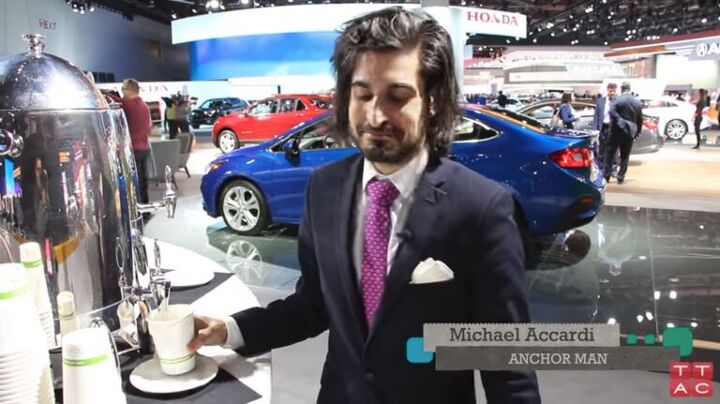



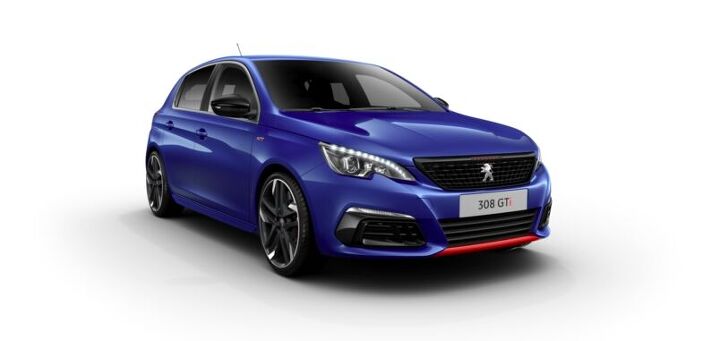

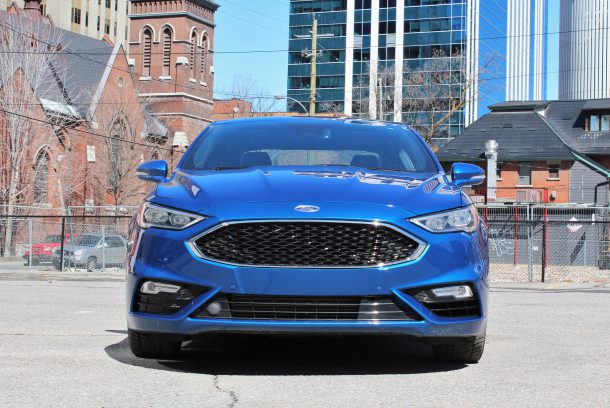
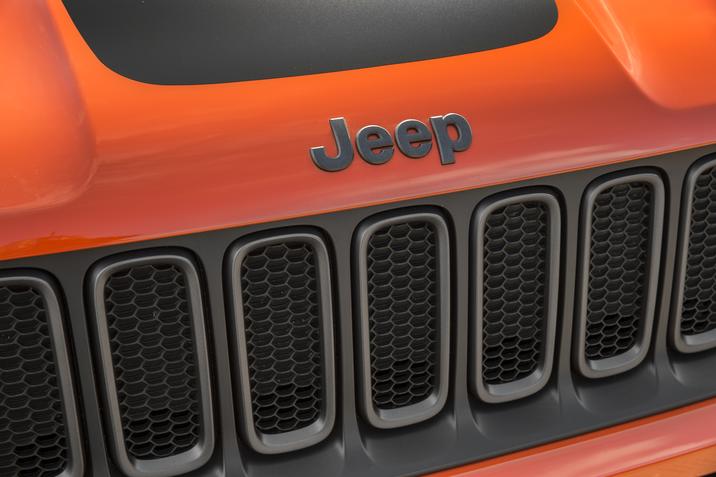
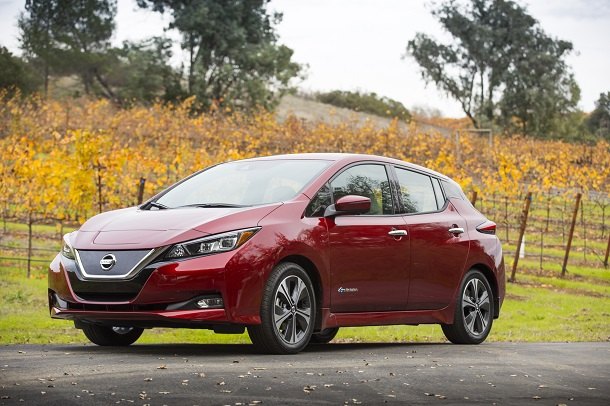
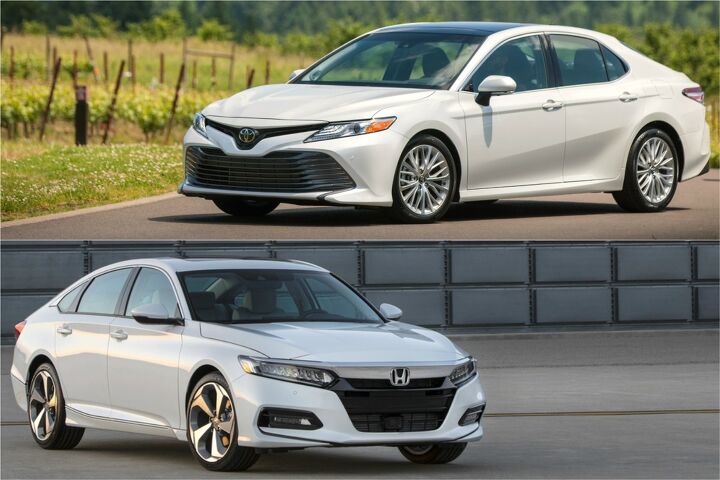
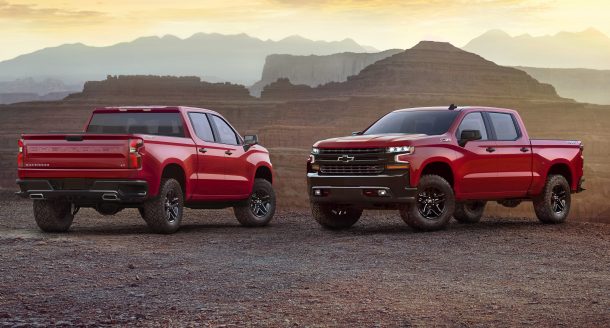





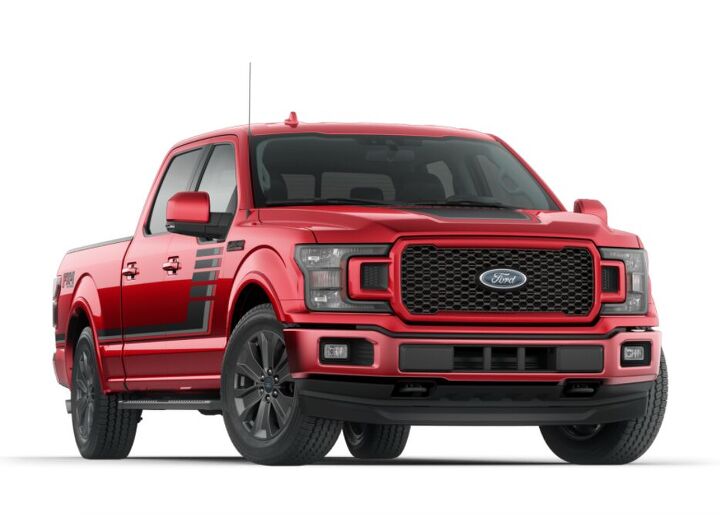






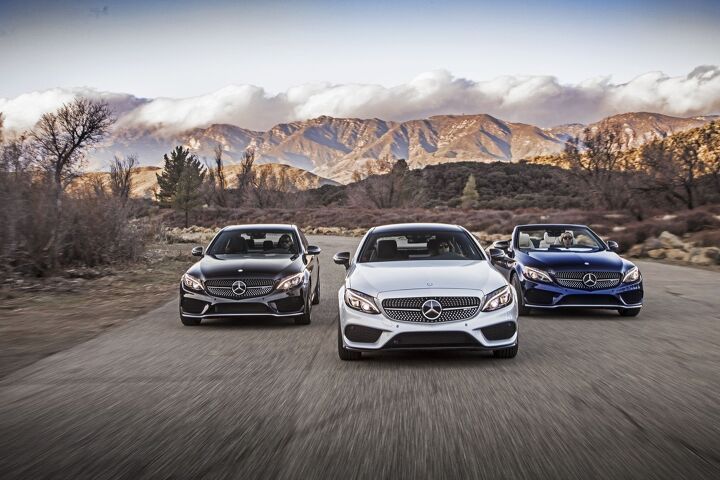
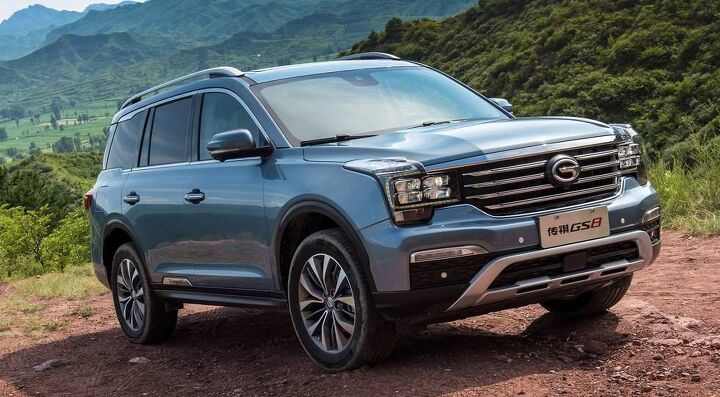



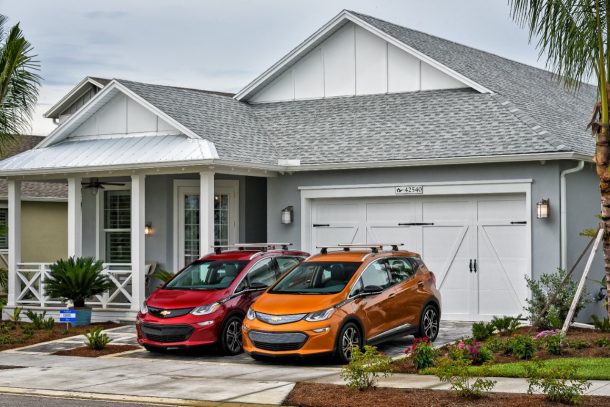

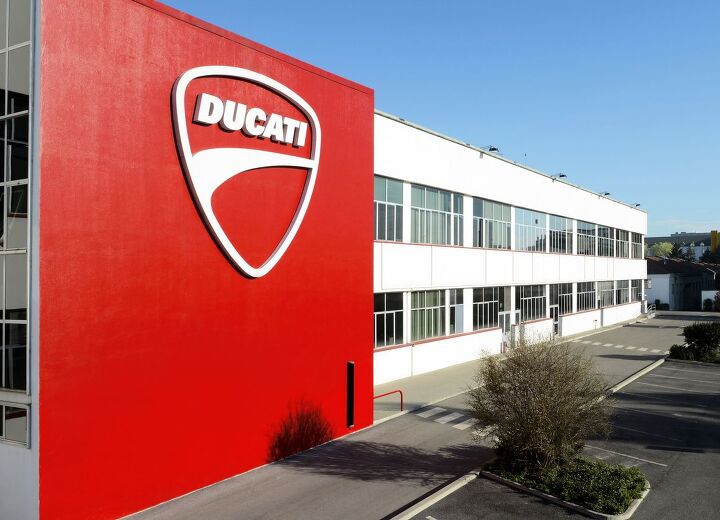







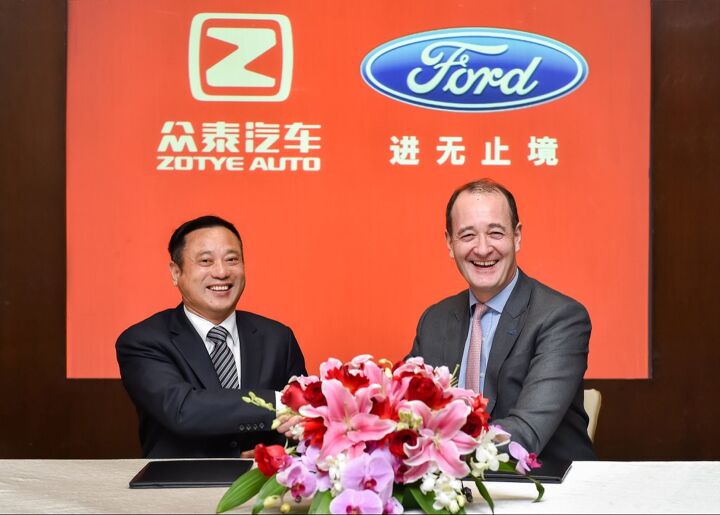


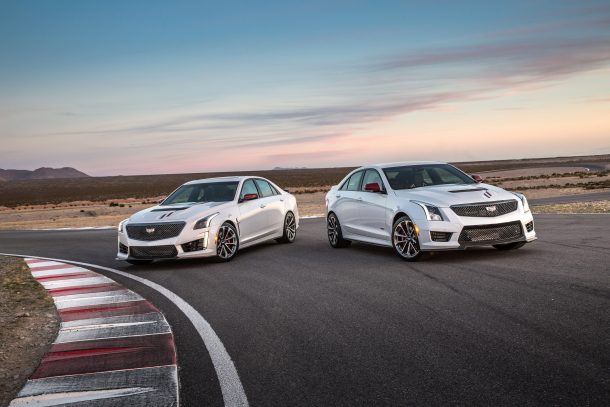

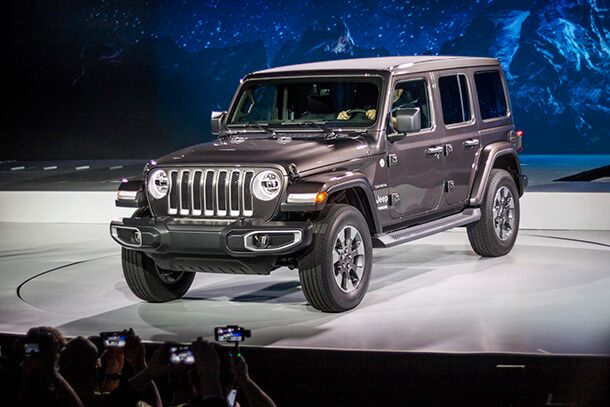






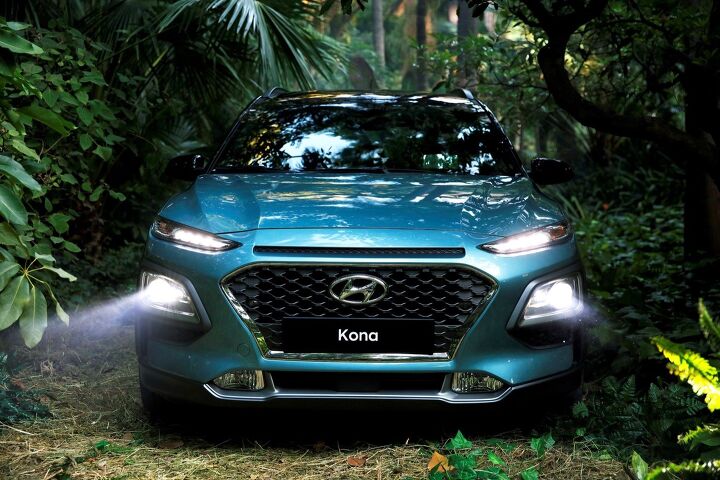



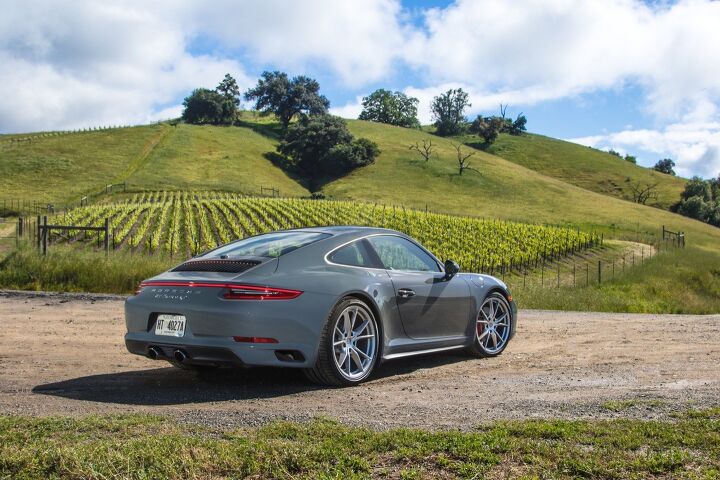

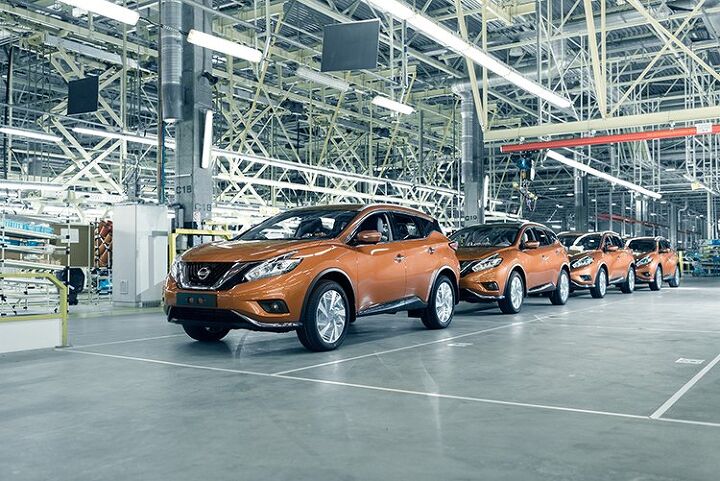
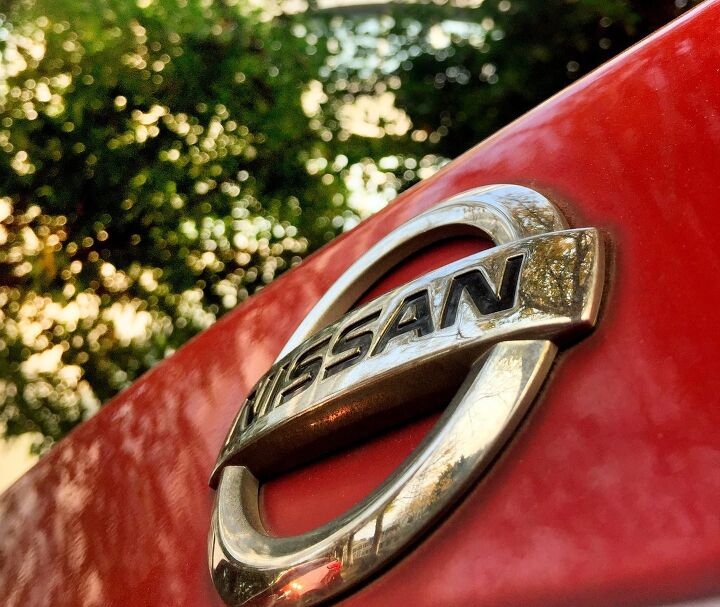
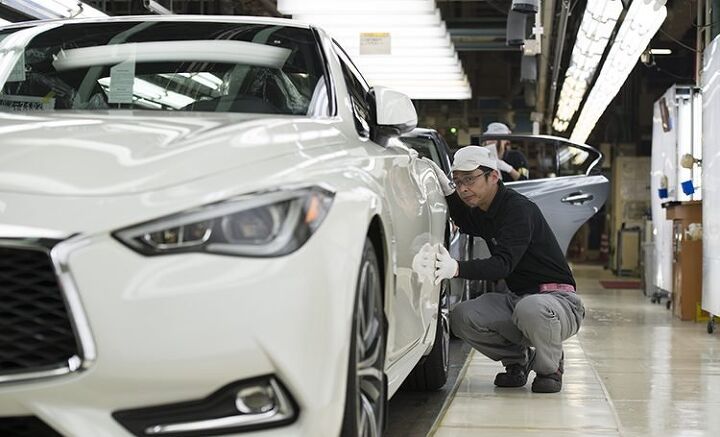













Recent Comments